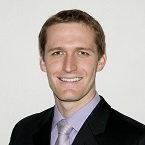By: Markus S. Renno, MD, MPH, FAAP & Tim Thomas, MD, FAAP
If your pediatrician has a question about your child’s heart, he or she may refer your child to a pediatric cardiologist. Pediatric cardiologists specialize in diagnosing and treating heart problems in children. In those children who might need heart surgery, pediatric cardiologists work closely with pediatric heart surgeons to determine the best treatments and interventions.
A number of heart conditions can affect children. Some are structural differences they are born with. Others involve the electrical system that controls the heartbeat. Pediatric cardiologists are specially trained to diagnose and manage these problems. If you have a concern about your child’s heart, please discuss with your pediatrician whether referral to a pediatric cardiologist is needed.
What kind of training do pediatric cardiologists have?
Pediatric cardiologists are medical doctors who have completed
At least four years of medical school
Three years of pediatric residency
Three or more years of fellowship training in pediatric cardiology
Some pediatric cardiologists spend the last 1 to 2 years of fellowship focusing on special skills to diagnose and treat heart problems in children. Common focus areas include
Advanced imaging methods such as MRI, CT, and ultrasound
Heart catheterization procedures and interventions
The heart’s electrical system (Electrophysiology or "EP")
Heart failure and heart transplant
Care of children in the cardiac ICU
Adults with heart differences they were born with (Adult Congenital Heart Disease or "ACHD")
What types of treatment do pediatric cardiologists provide?
Pediatric cardiologists diagnose, treat, and manage heart problems in children, including
"Congenital heart disease" (heart differences children are born with), such as holes between chambers of the heart, valve problems, and abnormal blood vessels
"Arrhythmias", or abnormal heart rhythms caused by the electrical system that controls the heart beat
Some pediatric cardiologists also treat "pulmonary hypertension" (high blood pressure in the lungs), but in some regions of the country, pulmonary hypertension is treated by pediatric pulmonologists (lung specialists).
Some pediatric cardiologists may treat "systemic hypertension" (high blood pressure in the body), but in some regions of the country, systemic hypertension is treated by pediatric nephrologists (kidney specialists).
Where can I find a pediatric cardiologist?
Pediatric cardiologists practice in a variety of medical settings, including children’s hospitals, university medical centers, large community hospitals, as well as private offices throughout the country. Your pediatrician can help you find a board-certified pediatric cardiologist.
Pediatric cardiologists – the best care for children
Children are not just small adults. The kinds of heart problems children have are very different from adults. For example, children are more likely to be diagnosed with a heart difference that they were born with, but heart attacks in children are very rare. Pediatric cardiologists are specifically trained to look for heart problems that affect children.
Pediatric cardiologists work closely with primary care pediatricians to provide coordinated and comprehensive care. Because heart problems can sometimes be complex and come with other difficulties for children, pediatric cardiologists also often work in teams with other health care providers. These include pediatric heart surgeons, cardiac anesthesiologists, neonatologists, cardiac pediatric intensivists, pediatric radiologists, as well as pediatric nurses, nutritionists, and speech, occupational, and physical therapists. These teams have extensive training and expertise in the special needs of children with heart problems and are particularly attuned to their needs.
Pediatric cardiologists have extensive training and expertise in dealing with children and in treating children with heart problems. If your pediatrician suggests that your child see a pediatric cardiologist, you can be assured that your child will receive the best possible care.
About Dr. Renno
 Markus Renno, MD, MPH, FAAP, is a Clinical Instructor of Pediatric Cardiology at Vanderbilt University Medical Center. He is completing additional training in specialized techniques for imaging the hearts of children, including cardiac MRI and fetal echocardiography. During his training, he served in numerous leadership roles within the American Academy of Pediatrics, including the Section on Pediatric Trainees, Council of Pediatric Subspecialties, and Section on Cardiology & Cardiac Surgery. Dr. Renno lives in Spring Hill, Tennessee with his pediatrician wife Dr. Hannah Renno and their four children.
Markus Renno, MD, MPH, FAAP, is a Clinical Instructor of Pediatric Cardiology at Vanderbilt University Medical Center. He is completing additional training in specialized techniques for imaging the hearts of children, including cardiac MRI and fetal echocardiography. During his training, he served in numerous leadership roles within the American Academy of Pediatrics, including the Section on Pediatric Trainees, Council of Pediatric Subspecialties, and Section on Cardiology & Cardiac Surgery. Dr. Renno lives in Spring Hill, Tennessee with his pediatrician wife Dr. Hannah Renno and their four children.
About Dr. Thomas
Tim Thomas, MD, FAAP, is an Assistant Professor of Pediatric Cardiology at Vanderbilt University Medical Center. His focus is on providing general pediatric cardiology care to patients in five outreach clinics in Middle Tennessee. Dr. Thomas maintains a love for the engineering principles in cardiology that began as an undergraduate at Georgia Tech. He provides around 3,000 outpatients visits per year, including several hundred in Spanish, which frequently surprises his patients. Dr. Thomas and his wife are active members of the United Methodist Church and greatly enjoy their three children.